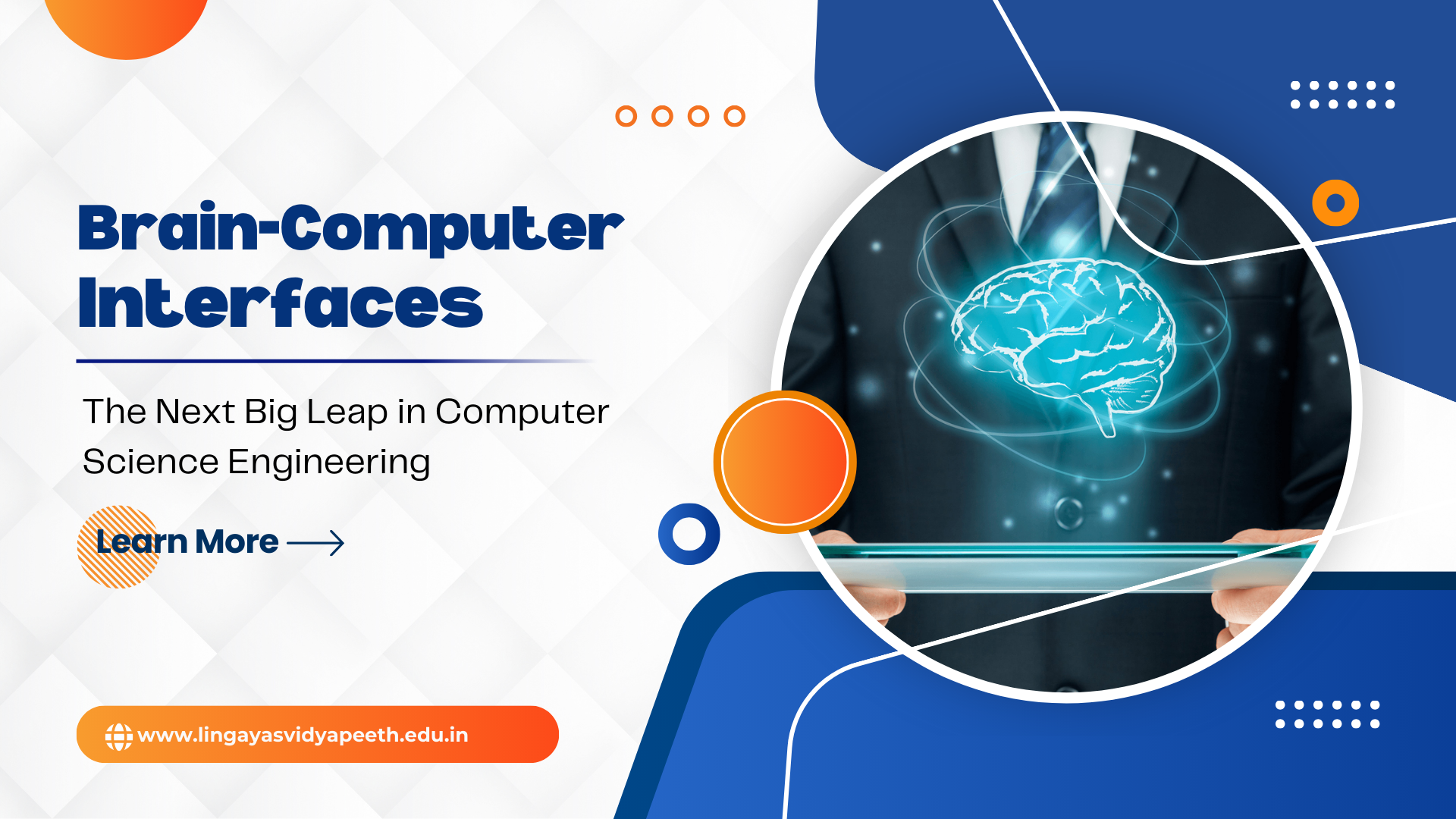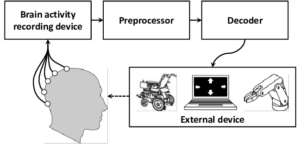Home » Brain-Computer Interfaces: An Emerging Frontier in Computer Science Engineering

Brain-Computer Interfaces (BCIs), a technology that bridges the gap between the human brain and computers, have been a subject of fascination and research for a long time. As computer science engineering continues to advance, BCIs are emerging as a promising field with vast potential applications
BCIs are devices that can detect and interpret brain signals, allowing users to control computers or other devices using their thoughts. This technology works by measuring electrical activity in the brain through electrodes placed on the scalp or implanted directly into the brain. The recorded signals are then processed by computer algorithms to identify patterns that correspond to specific thoughts or intentions.
Exploring the Vast Horizons of Computer Science
Invasive or non-invasive techniques are commonly used in BCIs to assess brain activity. Invasive methods, such as surgically implanting electrodes directly into the brain, offer higher signal quality but carry significant risks. Non-invasive methods, like electroencephalography (EEG) and magnetoencephalography (MEG), are less invasive but may have lower signal quality.
BCIs have the power to transform numerous fields:
Top 10 Essential AI Tools for Computer Science Students

While BCIs offer great possibilities, they also present significant obstacles and ethical considerations:
Despite the challenges, the future of BCIs looks promising. As technology continues to advance, we can expect to see significant improvements in signal quality, reliability, and affordability. BCIs have the potential to transform our lives in countless ways, from improving healthcare to enhancing human capabilities. It is essential to approach this technology with a sense of responsibility and ensure that its benefits are widely accessible while mitigating potential risks.
Conclusion-
BCIs represent a groundbreaking intersection of neuroscience and computer science. While obstacles remain, the potential benefits of this technology are huge. As research progresses, we can expect BCIs to play an increasingly important role in healthcare, gaming, and human augmentation.
Confused About MTech CSE Specialization? Choosing the Right Path for You!
Lingaya’s Vidyapeeth stands out as the ideal choice for pursuing a MTech CSE. Being the best university in Delhi NCR and with its expert faculty, cutting-edge curriculum and modern infrastructure, students receive top education that equips them with practical skills and theoretical knowledge vital for succeeding in the computing field.
From
Dr. Tapsi Nagpal
Asst. Professor in CSE Dept.
Lingaya’s Vidyapeeth
Best Colleges in Faridabad For MTech CSE
RECENT POSTS
CATEGORIES
TAGS
Agriculture Agriculture future AI Architecture artificial intelligence BA English BA Psychology BTech Engineering Business management career Career-Specific Education career guide Career Opportunities career option career scope Civil engineering commerce and management Computer Science Computer science engineering Data science degree education Engineering engineering college Engineering students English Literature english program Exam tips Fashion Design Fashion design course Higher Education Journalism journalism and mass communication law Law career Machine Learning MA Psychology Master degree mathematics MBA Mechanical Engineering Pharmacy Psychology Research and Development students
University Address: Nachauli, Jasana Road, Faridabad, Haryana
Toll Free: 1800-120-4613
Mobile : 8447744303 | 8447744304 | 8447744306 | 8447744309
[email protected]
[email protected]
[email protected]
[email protected]
Address: C-72, Second Floor, Shivalik, Near Malviya Nagar,
Above HDFC Bank, New Delhi 110017
Ph.No. - 011-46570515 / 45138169 / 41755703 / +91-7303152412
Jagmani Kutir, Ground Floor, Road No-1, Rajeev Nagar,
Near Darbar Marriage Hall, Patna-800024, Bihar
Contact No: 9818352069/8130120095
Mail: [email protected]
Copyrights © 1998 - 2025 Lingaya's Vidyapeeth (Deemed To Be University). All rights reserved.
It is important to note that the following email IDs and domains are fraudulent and do not belong to our university.
LV only conducts physical/online verification of any document related to examination on the following email id: